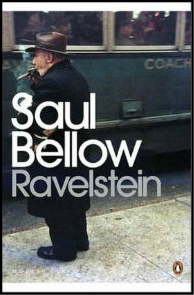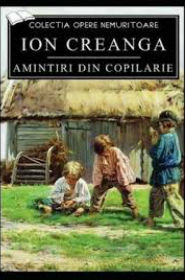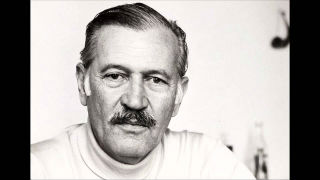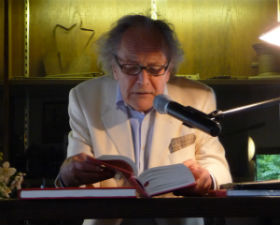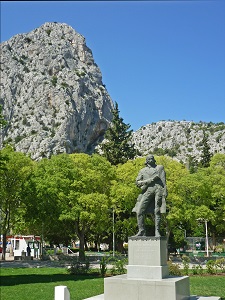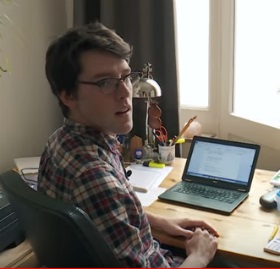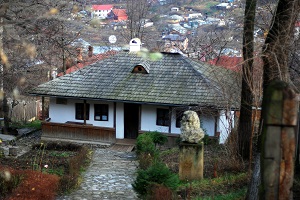De joods-Amerikaanse schrijver Saul Bellow werd geboren op 10 juni 1915 te Lachine, een voorstad van Montreal. Zie ook alle tags voor Saul Bellow op dit blog.
Uit: By The St. Lawrence
“Not the Rob Rexler?
Yes, Rexler, the man who wrote all those books on theater and cinema in Weimar Germany, the author of Postwar Berlin and of the controversial study of Bertolt Brecht. Quite an old man now and, it turns out, though you wouldn’t have guessed it from his work, physically handicapped-not disabled, only slightly crippled in adolescence by infantile paralysis. You picture a tall man when you read him, and his actual short, stooped figure is something of a surprise. You don’t expect the author of those swift sentences to have an abrupt neck, a long jaw, and a knot-back. But these are minor items, and in conversation with him you quickly forget his disabilities.
Because New York has been his base for half a century, it is assumed that he comes from the East Side or Brooklyn. In fact he is a Canadian, born in Lachine, Quebec, an unlikely birthplace for a historian who has written so much about cosmopolitan Berlin, about nihilism, decadence, Marxism, national socialism, and who described the trenches of World War I as “man sandwiches” served up by the leaders of the great powers.
Yes, he was born in Lachine to parents from Kiev. His childhood was divided between Lachine and Montreal. And just now, after a near-fatal illness, he had had a curious desire or need to see Lachine again. For this reason he accepted a lecture invitation from McGill University despite his waning interest in (and a growing dislike for) Bertolt Brecht. Tired of Brecht and his Marxism-his Stalinism-he stuck with him somehow. He might have canceled the trip. He was still convalescent and weak. He had written to his McGill contact, “I’ve been playing hopscotch at death’s door, and since I travel alone I have to arrange for wheelchairs between the ticket counter and the gate. Can I count on being met at Dorval?”
He counted also on a driver to take him to Lachine. He asked him to park the Mercedes limo in front of his birthplace. The street was empty. The low brick house was the only one left standing. All the buildings for blocks around had been torn down. He told the driver, “I’m going to walk down to the river. Can you wait for about an hour?” He anticipated correctly that his legs would soon tire and that the empty streets would be cold, too. Late October was almost wintry in these parts. Rexler was wearing his dark-green cloaklike Salzburg loden coat.”
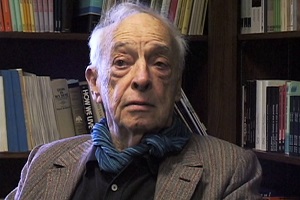
Saul Bellow (10 juni 1915 – 5 april 2005)
De Roemeense schrijver Ion Creanga werd geboren op 10 juni 1839 in Humuleşti. Zie ook alle tags voor Ion Creanga op dit blog.
Uit: Memories of My Boyhood (Vertaald door Ana Cartianu en R.C. Johnston)
“Yet, the true St. Nicholas seems to have been mindful of me, for, lo and behold, that blessed boy walked into the schoolroom. Where upon, with permission or not, I made for the door, slipped out quickly, and, never lingering about the school, took to my heels homewards! A glance over my shoulder showed me two hulking brutes already on my tracks. Then I started running so fast that my feet struck sparks out of the ground! I passed our house without going in, turned left and entered the yard of one of our neighbors; from the yard I went into the stableyard, and from the stableyard into the maize field, newly hoed and tilled, with the boys after me. Before they reached me, scared out of my wits as I was, I somehow managed to burrow into the mound at the root of a maize stalk. Nica, Costache’s son, with Toader, Catinca’s son, an equally loathsome brute, passed by me, saying just what they were going to do to me.
Surely the Lord blinded them, so that they couldn’t find me! After a while, hearing no rustling of maize leaves, not even a hen scratching the ground, I suddenly darted out, with earth on my head, and rushed home to mother and began telling her with tears in my eyes that I would not go back to school, no, not if they were to kill me. The next day, however, the priest came to our house and settled things with father; they calmed me down and took me back to school again. “For really, it’s a pity to be left without any education, ” the priest was saying, “you’re now past your ABC’s, you’re working on the prayerbook, and, one of these days, you’ll go on to the psalter, which is the key to all wisdom. And who can tell what time has in store for us? Maybe you’ll live to become the priest here, at the church of St. Nicholas, because it’s for the likes of you that I take the pains I do. I have an only daughter, and I will think seriously about my choice of a son-in-law.”
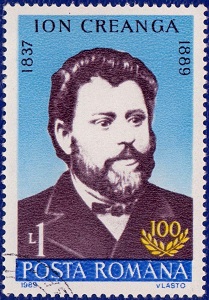
Ion Creanga (10 juni 1839 – 31 december 1889)
De Turkse dichter Oktay Rifat werd geboren op 10 juni 1914 in Trabzon. Zie ook alle tags voor Oktay Rifat op dit blog.
Agamemnon I (Fragment)
Leaving the ships to be scraped we trudged on, and reached a valley; each of us rolled a cigarette with fingers gnarled or missing.
A smoke killed time as we crouched and leant against the rocks.
The quickest way to kill time! It gets less and less or ends for good. Or then again, it expands against the pull of earth and the north-caster! Panting like squirrels, suspicious, always suspicious!
Whatever is ours is behind the mountain. But they are there, running away in the sudden flight of a partridge, or in a lizard’s glance, in every hole and under every stone.
They turned their fiery sharp savage weapons of destruction against us, cowardly with their long-shadowed spears, murderous as their guns or mortars, shells and bazookas.
Just when we say they can’t increase, they do! Their faces are like ours but inside their armour are gods, their luminous eyes terrifying!
`What have we done wrong?’ we asked, ‘can someone tell us our crime?’ We know the weight of guilt. Our backs bent double under this rock, our teeth blackened with tbis water.
If we must land up in hospital wards or in prison cells, or be sold dirt-cheap in the labour-market, so be it!
From behind the barbed wire let’s look at someone taking random instant photographs of the white muslin over the copper yoghurt vessel, or of the huge Prison full of light!
In the evening the water in our jug is finished and perched on stone, or sometimes concrete, our birds all fly away.
One piece of lokum remains on the rose-patterned plate – God knows how! The fruit on the branch consumes night for us.
Yes, for us! Agamemnon laughs at this. Diomedes belts on his swords to become the icon of deathless epics.
Vertaald door Richard McKane en Ruth Christie
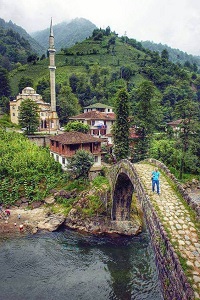
Oktay Rifat (10 juni 1914 – 10 april 1988)
Trabzon
De Duitse schrijver Peter Kurzeck werd geboren op 10 juni 1943 in Tachau, Bohemen. Zie ook alle tags voor Peter Kurzeck op dit blog.
Uit: Ein Kirschkern im März
„Im Westend ein vornehmes Mietshaus. Die Wohnung im zweiten Stock und im Dachgeschoß nochmal zwei Zimmer. Birgit und Peter heißen meine Gastgeber. Und Domi ihr Sohn. Mit Carina im Kinderladen. Birgit ist Lehrerin. Sie will malen. Als Lehrerin eine halbe Stelle. Schon ihr Leben lang will sie malen. Und Peter (der andere Peter, sagen Domi und Carina, mein Peter und dein Peter) am Institut für Friedens- und Konfliktforschung. Bart und Doktortitel. Ein freundliches Gesicht. Birgits Arbeitszimmer mit hellen Möbeln, die nach Bienenwachs riechen. Ihr Schreibtisch schon für mich leergeräumt. Über dem Schreibtisch ein Oberlichtfenster. Viel Himmel und den ganzen Tag hell das Licht auf den Schreibtisch. Ein großer Strauß frische Tulpen und ein voller Obstkorb für mich. Wie für ein Bild der Obstkorb und Kunstbücher in den Regalen. Teppich und Holzfußboden. Und ein Sofa, aus dem man mit drei Handgriffen ein Bett machen kann. Hier also. Und daneben das zweite, sein Arbeitszimmer. Groß. In der Mitte ein Schreibtisch und noch zwei Tische daneben. Überall Papier, Akten, Mappen und Ordner. Regale, ein Schrank. Auf dem Fußboden Domis Spielzeug. Playmobil. Eine Ritterburg, Elefanten, Bauernhoftiere, ein Indianerlager und Schiffe. Ein Meer von Schiffen. Drei Fenster nach Westen und unter den Fenstern eine stille Nachmittagsseitenstraße. Du kannst mein Arbeitszimmer auch mitbenutzen, sagt er zu mir. Tagsüber sowieso, tagsüber ist er in seinem Büro. Mitbenutzen nicht, sagte ich mir, aber manchmal zur Tür herein und durch das Licht und die Stille von Fenster zu Fenster. Hier also! Und dann noch das Bad. Ein kleines perfektes Bad. Für heißes Wasser ein Boiler mit bunten Lämpchen. Und im Vorraum zum Bad Waschmaschine, Kühlschrank und Kochplatte. Also gerettet? In Sicherheit? Vorerst gerettet, aber wie lang? Und zusammen mit Freunden noch ein Haus auf dem Land, sagen meine Gastgeber am ersten Tag mittags beim Essen zu mir.In der Schwalm. Klein und alt und für die Wochenenden beinah schon ein bißchen zu weit. Ein Fachwerkhaus mit spitzem Giebel und kleinen Fenstern. Und ein Gärtchen dabei und im Gärtchen die Jahreszeiten. Vielleicht bald einmal zusammen hinfahren, sagen sie. Mit den Kindern. Wenn es jetzt wärmer wird. Görzhain heißt das Dorf. In der Schwalm sind die Winter länger. Schön, daß Carina und Domi sich so gut verstehen. Als Gast, wie lang bleibt man als Gast? Mittag, der erste Tag. Mit meinen Gastgebern essen und nach dem Essen noch jeder einen Kaffee.“
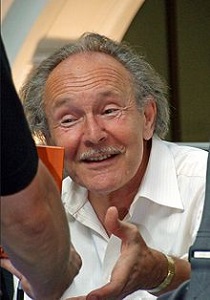
Peter Kurzeck (10 juni 1943 – 25 november 2013)
De Kroatische dichter en diplomaat Antun Mihanović werd geboren in Zagreb op 10 juni 1796. Zie ook alle tags voor Antun Mihanović op dit blog.
Ons mooie vaderland
Ons mooie vaderland,
Zo onverschrokken en verfijnd,
De oude glorie van onze vaders,
moge u voor altijd gelukkig zijn.
Beste, u bent voor ons als enige glorieus,
U bent ons als enige lief,
Beste, waar u een vlakte bent,
Beste, waar u een berg bent.
Drava, Sava, blijf stromen,
Noch de Donau verliest kracht.
Diepe blauwe zee, vertel de wereld,
Dat een Kroaat van zijn volk houdt.
Zolang z’n gebieden in de zonneschijn warm zijn,
Zolang z’n eiken door wilde winden worden geschud,
Zolang z’n doden in graven verborgen liggen,
Zolang zijn levende hart slaat.
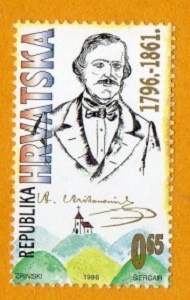
Antun Mihanović (10 juni 1796 – 14 november 1861)
Onafhankelijk van geboortedata:
De Vlaamse dichter Tijl Nuyts werd geboren in 1993. Zie ook alle tags voor Tijl Nuyts op dit blog.
Safra
het tetragrammaton licht op in het duister
zon breekt als een stralend mes in onze ogen
onder de trompetboom drinken we zwart vocht
en lezen boeken vol mensenproza
de tijd is een tumor die de taal in een hoek drukt
ik zal jullie vertellen wat ik gisteren zag
vanuit mijn zetel van bruine skai, in de schaduw van de ficus:
een kleuter-krijger liep over het hete asfalt de rotonde op
en slalomde tussen de auto’s
toen hij stilstond op het riooldeksel was de straat leeg
het ene moment stond hij gewoon naast de brievenbus en de kriekelaar
het volgende werd hij opgegeten door papier
(het klinkt raar, ik weet het, maar zo ging het):
boodschappenlijsten, doktersvoorschriften, boeken over ibn ‘arabi
werden aangeblazen door de lome wind en drukten zich op zijn
zomerarmen, -benen, -schouders, -hoofd, -romp, -handen, -voeten;
de bladen bezetten zijn lichaam met kleur en lastlijn
de kleuter-krijger werd volledig gemummificeerd
toen het oud papier even later wegwaaide
was de kleuter-krijger verdwenen

Tijl Nuyts (Kortrijk (?), 1993)


